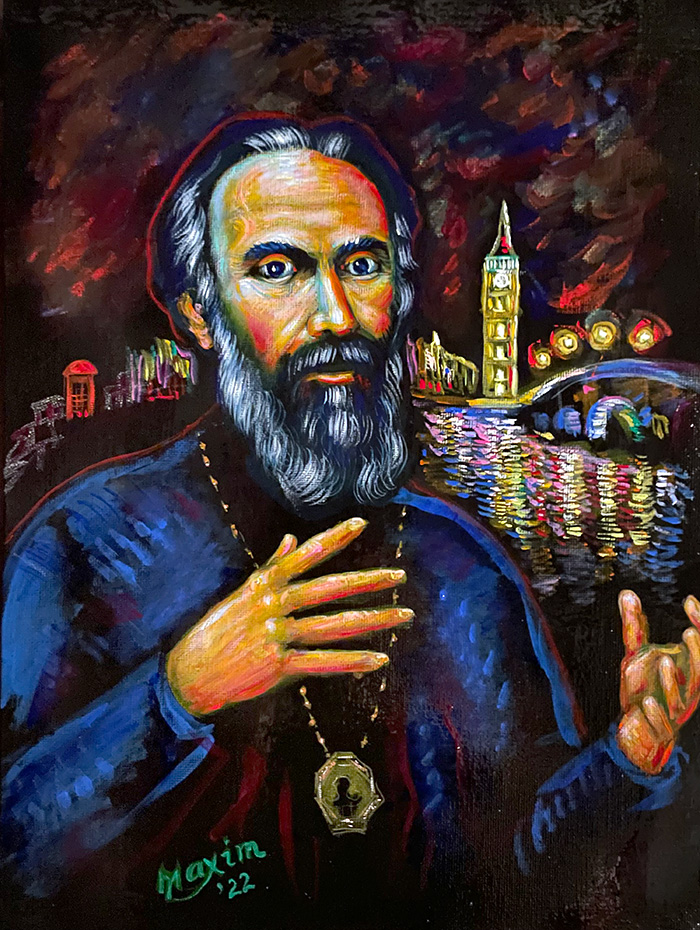
- Details
- Category: Maxim
- Hits: 689

"Metropolitan Anthony Bloom of Sourozh", acrylic on canvas, by Bishop Maxim, 2022
Metropolitan Anthony of Sourozh, who served as a bishop in London from 1957 to 2003, was best known as a writer and broadcaster on prayer and the Christian life. This remarkable, indeed saintly, bishop said: "We should try to live in such a way that if the Gospels were lost, they could be re-written by looking at us.” After reading classics, he went on to study physics, chemistry, and biology at the Sorbonne School of Science. In 1939 he was qualified as a physician. During the years the German army occupied France when he was a physician active in the Maquis, a section of the French resistance, he had the occasion to use his medical skills to save the life of a German soldier. In 1953 he was appointed hegoumen, in 1956 archimandrite, then in 1962 archbishop of the newly created Diocese of Sourozh, encompassing Britain and Ireland.
During the long years of Soviet rule, Metropolitan Anthony played an important part in keeping the faith alive in Russia through countless BBC World Service broadcasts. At the height of his fame, Gerald Priestland, the renowned BBC religious correspondent, called him “the single most powerful Christian voice in the land.” In great demand as a speaker, Metropolitan Anthony spent much of his time preaching in non-Orthodox churches, leading retreats, giving talks, and hearing confessions. He regularly spoke in hospitals, particularly about death, drawing on his experience as a cancer specialist. He received honorary doctorates from Cambridge and from the Moscow Theological Academy. His faded and frayed black robe seemed nearly as old and worn as he was. He was attentive to the person he was listening to, no matter who it was, to an astonishing degree. “In my life, no one else had ever looked at me with such absolute attention,” people would often comment.
